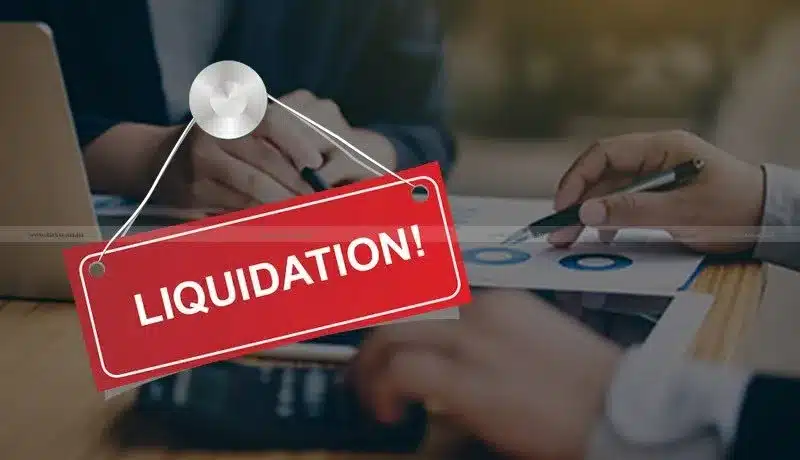The difficulties and successes of starting and running a firm are roughly equal in number. You need to figure out a way to keep the business afloat until it begins to generate enough revenue to cover your initial investment. However, buying inventory might be expensive, but you can save a lot of money by starting with liquidated goods. Liquidation sales are a terrific place to get high-quality items at bargain prices, which you can subsequently resell for a profit. In this article, we will discuss online, auto, and furniture liquidation sales.
What Are Liquidation Sales?
Liquidation sales are methods used to get rid of huge amounts of stock and assets in order to reclaim a percentage of the money spent initially. The idea is to make as much money as possible in a short period of time.
Prices at liquidation sales often drop gradually over the course of 8-10 weeks. Although getting paid in advance over a period of a few weeks has its benefits, the major disadvantage is accepting less money for things than their true market prices would dictate.
However, liquidation sales may be carried out for a variety of reasons, such as:
- Winding down a business. When profits aren’t enough to cover costs, most businesses are forced to close. When opposed to other methods of terminating a firm, liquidation sales have the advantage of being a quick and simple approach to liquidating assets. It’s a convenient technique to avoid the time and effort involved in handing over control of a situation or negotiating a financial transaction. In addition, liquidation sales take place rapidly yet still provide participants ample time to discover suitable purchasers and negotiate reasonable pricing.
- Conducting overstock inventory liquidations. Companies who have trouble shifting their inventory quickly recognize the frustration of having extra products take up valuable resources like money and space. This may occur if inventory is managed poorly or if consumers show little interest in a given product. But the immediate cure is usually liquidation sales, which clears out the shelves and brings in cash.
- Altering product lines and introducing new systems. It’s not uncommon for businesses to benefit from new ideas or methods of operation. Also, it is common practice to liquidate assets by updating technical systems and ending product lines. To get rid of old or surplus stock, liquidation sales are the ideal option.
How Liquidation Sales Work
Retailers can benefit from clearing out this stock in order to make room for new products. It makes no sense to let these goods gather dust and take up space in storage facilities. To recuperate some of those losses and make room for new inventory, all the major stores you’re acquainted with are probably selling off their overstock, seasonal, and customer returns.
Until recently, prominent merchants’ liquidated items were inaccessible to small enterprises and resellers. These corporations would then sell their remaining inventory to a handful of liquidators, who would subsequently split the pallets up, remove the high-quality items, and resell the remainder to you at a discount.
Luckily for wholesalers, retailers have developed a more efficient system. To facilitate the direct sale of such items, businesses are now establishing online marketplaces. This allows them to recoup some of their investment and expedites the items’ entry into the secondary market via resellers.
Due to the “as is” nature of the sale, buyers should carefully examine the auction details and manifests to determine whether or not their purchases are in satisfactory condition. You may need to provide a resale certificate or other proof that you intend to resell the goods before you can make a purchase on some marketplace websites. If you’re seeking for the best deals, competitive online bidding lets you buy a pallet, many pallets, or a truckload for pennies on the dollar.
Therefore, liquidation sales are a gold mine for you as a reseller. There are companies devoted solely to the acquisition and resale of liquidation goods. The constant availability of both new products from businesses and eager buyers (and return customers) makes this a safe bet. The best thing is that reputable brands are available at rock-bottom prices.
What Are Liquidation Types?
The following are the three main types of liquidation:
#1. Voluntary Liquidation
When a firm voluntarily dissolves its assets and activities to pay off its creditors, the process is known as “voluntary liquidation.” This procedure is governed by the terms of the Companies Act of 2013.
Typically, it all starts with a resolution from the board of directors to dissolve the corporation. After the resolution is approved, the corporation must submit an application to the ROC. After making an official statement, creditors can file claims.
Furthermore, following the receipt and approval of the claims, the company’s assets are liquidated and the revenues are distributed to the owed creditors. If there is money left over after expenses, it is given to the stockholders.
Once the company’s assets have been sold and its creditors have been paid in full, the corporation is dissolved and its shareholders have no further responsibilities or rights to the company.
#2. Creditors Voluntary Liquidation
When a company’s creditors elect to liquidate its assets voluntarily, the process is known as creditors’ voluntary liquidation (CVL). It’s something the board of directors of a firm does on their own time. To go through with liquidation sales, the majority of the company’s creditors must approve it.
Creditors’ Voluntary Liquidation (CVL) begins with a meeting of creditors called by the board of directors. Creditors will be asked to decide at this meeting whether or not they want the company’s assets liquidated.
Also, creditors must approve the liquidation sales before the company’s assets can be liquidated to repay those who owe money to the business. A liquidator, appointed by the board of directors, will be in charge of the company’s liquidation. If there is money left over after debts are settled, the liquidator is the one who gets to spend it.
At the conclusion of the liquidation procedure, the company will be dissolved and the directors will have no further obligations to the firm.
#3. Compulsory Liquidation
Compulsory liquidation is a legal process that the creditors of a company initiate. Insolvency occurs when a firm has debts it can’t pay and cannot come to terms with its creditors on how to do so. Creditors have the option of petitioning the National Company Law Tribunal (NCLT) for the company’s dissolution in such a scenario.
The National Company Law Tribunal (NCLT) will then appoint a liquidator to sell the company’s assets and settle the debts owed to its creditors.
As part of their duties, liquidators have to deal with closing down businesses and dividing up any residual assets among the company’s shareholders.
In addition, the court appoints a liquidator in compulsory liquidation to manage the sales of the company’s assets and the distribution of the proceeds to the creditors. To wind down the business, the liquidator can make whatever modifications are necessary, including entering into new contracts and selling off assets.
After all, debts have been paid off, any leftover assets may be split among the stockholders. However, in many instances, the sale of the company’s assets is not sufficient to pay off all creditors, and the shareholders may receive no cash. The laws of the nation in which the firm is headquartered will dictate the precise procedure for forcible liquidation.
Liquidation Process
You may be wondering, “How do I actually liquidate my company?” if you are thinking of liquidating an insolvent private company.
The good news is that a professional insolvency practitioner will take care of most of the liquidation process for you, including settling any debts owed to creditors, selling off any remaining firm assets, and winding down the company’s operations.
On the other hand, as director, you have several responsibilities that must be fulfilled before the liquidation process can begin.
- Due to insufficient cash flow, the board of directors has decided to voluntarily dissolve the company.
- The only way to pay off the debts is to dissolve the company.
- A court can also order the closure of a company if necessary.
- An insolvency practitioner (IP) is appointed as the liquidator by the company or the court.
- At this point, the liquidator has all authority and control, and the owners have none.
- After making an evaluation, the insolvency practitioner sells off the assets.
- The next step is for the liquidator to total up the company’s debts and receivables.
- The authorized liquidator then divides the remaining funds among the claimants in accordance with the established priority order.
- When a corporation dissolves, its information disappears from the ROC.
What Are the 4 Causes of Liquidation?
There are many determinable and unpredictable elements that might contribute to a company’s liquidation, but in every case, there are also universal causes. Negative influences on a company include bad management, cash flow issues, and too much debt.
There may have been events, such as the loss of a key customer, that were beyond the control of the company’s directors but yet contributed to the company’s current predicament. However, company collapse and liquidation are, in the vast majority of situations, avoidable. Here are the top 4 causes of liquidation.
#1. Financial Stress Due to Insufficient Funding
How much money enters and leaves your company is referred to as its cash flow. For the purpose of paying off debts owed to various parties, a steady stream of cash is crucial. In Ireland and some other European countries, a lack of capital is a major contributor to the liquidation of a company.
In the first phases of growth, a company’s cash flow can be problematic. Perhaps you’re selling an increasingly popular product, which is helping to boost your business. Even so, that doesn’t ensure a positive cash flow for your company.
When a company is first starting out, it often finds itself between customers who are sluggish to pay and vendors who need immediate payment. Even though your sales are rising, you may be in danger of running out of money if this happens.
Despite the success of your product, you’re having serious cash flow issues because your customers aren’t paying on time. Reimbursing vendors, making salaries, and covering other operating costs are all essential. Your creditors may end up forcing the liquidation of a business that has great potential because of this. Also, read Filing for Bankruptcy: What Is It, Types and How It Works
#2. Low Customer Retention
It’s costly to constantly seek new customers. It’s believed that the cost of acquiring a new customer is anywhere from nine to eleven times that of keeping an existing one. A business that doesn’t care about its current customers will eventually fail.
Simply put, you can’t survive without your customers. Without them, your company would quickly fail due to a lack of sales. If you take care of them, they will take care of you.
Don’t ever believe the hype that your clients rely on you. You really are dependent upon them, after all. See to it that they come away from it all feeling fulfilled.
However, success in business also depends on maintaining a diverse clientele. It’s risky to put all your eggs in one customer’s basket. If your relationship were to alter, you couldn’t do business with each other. Diversifying the customers you serve is crucial to the success of your business.
#3. Excessive Business Debts
It makes sense for most firms to take out loans in order to fund expansion. The problem, though, is that many businesses are too complacent about their borrowing. Even during times of prosperity, a company’s debts should be kept to a reasonable level.
In the short and long term, having too much debt can cause a number of issues.
The main problem is that excessive debt has a devastating effect on profitability. High monthly interest payments are a significant drain on profit margins when added to a company’s other operating costs. The longer you carry a balance, the more interest you will accrue.
The burden of debt may be devastating to a company’s bottom line. You will go bankrupt if you fail to meet the repayment terms of your loans.
#4. Poor Administration
Due to poor management, many businesses have to close their doors for good. The success of any company, no matter its size, depends on competent management. Many entrepreneurs make this basic blunder when first starting out. They think they know how to run a company since they’ve worked in one before. In reality, this is rarely the case for a flourishing and expanding company.
But management is a difficult profession, and it’s always evolving. If a manager isn’t good at their job, it might be difficult to keep their staff focused and motivated. Mismanagement of firm funds or budget overextension due to inexperienced management can also cause significant problems for a company’s finances. Read: EFFECTIVE INVENTORY MANAGEMENT: Guide To Do It 2023
What Are the Pros and Cons of Liquidation?
Here are some of the top benefits and drawbacks of liquidation.
PROS
- Profit margins would skyrocket, but you’d lose clients who couldn’t afford to cover the costs of your claims.
- It would alleviate the company’s legal debt burden but not the owners’ personal financial burden.
- If the company is liquidated, you will no longer be responsible for paying off your debts; however, this will not affect any personal guarantees you may have made to creditors.
- It’s a great way for business owners to diversify their income streams.
- Workers can file for unemployment benefits, including severance compensation, holiday pay, and back pay if they have been laid off.
- Following the liquidation, you will not be responsible for any business revenue taxes.
- It releases board members from all managerial duties.
- If creditors are under undue pressure, a business liquidation is an option and the practitioner would handle communications with the creditors.
CONS
- The personal credit limit is unaffected by the liquidation process, and the company’s financial records are still available at the company’s physical location.
- Problems with personal credit could arise.
- There will be no recovery of the tax losses.
- Because of the financial strain, management and administration would pay closer attention to the creditors.
- Without a valid business license, the company’s reputation and assets would suffer.
- The money and investments of both creditors and vendors would be wiped out.
- Loans taken out on personal credit cards or homes may need to be repaid by the owners.
- Any illicit gains that stockholders have hidden away would need to be returned.
- Whether they are employees or business owners, many individuals would be out of work.
- Any further use of the same name by the corporation is illegal.
Online Liquidation Sales
Having a physical location and selling products requires a considerable lot of management responsibility. Keeping up with the day-to-day operations of your business includes more than just attending to consumers’ needs. When it’s time to wind things down or shut the doors, liquidating the firm may be a difficult, if not overwhelming, process.
A quick and easy fix exists, though, and it can make a significant dent in your workload. One of the most convenient ways to sell off surplus stock is through online liquidation sales.
What are Online Liquidation Sales?
Online liquidation sales provide a handy and cost-effective way for firms to sell off excess inventory or closeout items. The use of e-commerce platforms facilitates these deals and increases exposure to a larger pool of buyers. Customers can take advantage of steep discounts on a wide range of things, including electronics, apparel, furniture, and more.
Online liquidation sales, however, have exploded in popularity in recent years. The Internet has made it easier for businesses to reach customers all around the world.
You won’t have to sweat the small stuff with online liquidation sales. All you have to do is create a new website and advertise your goods and services there. The website is responsible for automatically handling all of the transactions, including promotions and payments. When an item sells, all that is left to do is pack and ship it.
How Can Online Liquidation Sales Benefit Your Business?
The following is a list of the advantages of online liquidation sales to businesses:
#1. Conceal Time
In the past, holding liquidation sales meant spending a lot of effort on administrative work including advertising, buyer organization, and payment processing. When holding liquidation sales online, the platform handles all of these details automatically. The stress of setting up and managing a storefront sale is unnecessary. Just put up your wares for sale and wait for customers to come to you.
#2. Cost Savings
It is not necessary for you to spend the same fees when you host online liquidation sales as it would be if you were to organize the same sale at a physical retail location. For instance, the cost of advertising liquidation sales that is held online is a great deal lower than the cost of advertising a liquidation sale that is held in a physical store. In addition, you won’t have to worry about the high costs associated with renting a shop space, as this won’t be necessary for you.
#3. Possibilities for Expanding Businesses
Even while it may seem like the end when you’re having liquidation sales, it could actually be the start of something exciting. You can give your company a fresh start by holding a liquidation sale of your goods online. Getting rid of stock that isn’t moving can be a chance to start over. With the money you make from your internet store, you can start a new business or expand into new locations.
#4. Acceleration Of The Sales Cycle
Hosting liquidation sales online is more efficient than having a sale at a physical location. This is because people can submit bids on your products whenever they choose, day or night, 365 days a year. In addition, customers can do extensive research on the products online before to making a purchase. The whole purchase procedure is sped up as a result.
#5. Enhanced Productivity in the Office
Having liquidation sales online, as opposed to in person, can help you make a profit much more quickly. As a result, you and your staff will be able to take on more orders without lowering standards or missing deadlines. More efficiency in the workplace is one of the benefits of selling goods online.
Overview of the Best Online Sales for Asset Liquidation
Items that have been returned by customers but cannot be sold in stores owing to defects in the packaging or the product itself are also sold at sale on liquidation websites. The fact that the conditions of the goods can change should be clear to purchasers. Here is the top best online liquidation sales website.
- B-Stock. B-Stock, which refers to itself as a “sourcing network,” is a platform that puts buyers in direct contact with inventory from a wide variety of reputable shops. B-Stock typically sells customer returns and overstock. The website does, however, provide access to a variety of other liquidated goods in a wide range of product categories, regions, and terms and conditions.
- BlueLots. This online liquidation sales platform is primarily focused on selling lots of liquidated or overstocked goods to resellers in order to provide them with an inventory. Buyers are able to acquire products with huge margins since BlueLots requires businesses to pay certain fees.
- Bulq. While some vendors favor having a great number of a single item to sell, others would rather have a wide variety of things available for purchase and sale. Within each category, Bulq is able to sell individual items as well as entire cases, pallets, and truckloads.
- Direct Liquidation. Direct Liquidation provides consumer goods and electronics that have been returned or are in surplus inventory. The online liquidation sales platform collaborates with stores including Walmart, Target, and Lowe’s amongst others.
- American Merchandise Liquidators. Brick-and-mortar business American Inventory Liquidators, Inc. has been in the business of liquidating inventory for close to twenty years now. Online liquidation sales make its services and products available to a greater number of online retailers and customers.
Furniture Liquidation Sales
Furniture liquidation sales are a great business opportunity, regardless of whether you’ve dabbled in the resale world before. Sure, we’re talking about furniture and not just any old piece of junk. Furniture from well-known stores including Ashley Homestore, Herman Miller, Wayfair, Target, and Walmart is available, whether it is brand new or a customer return. Oftentimes, in order to make room for new products, these businesses would sell off returned furniture or excess merchandise from their warehouses. After that, the inventory is put up for sale on online auction platforms such as B-Stock. To introduce them to the secondary market, resellers might buy this stock at steep discounts.
What are Furniture Liquidation Sales?
Furniture liquidation sales are a low-cost solution to sell your furniture if you’re moving to a new workplace or house and don’t have enough space to store it. However, you can either sell the furniture on your own, which may be a lot of work, toss it away, which requires time and money to transport to the landfill or hire a liquidator to do it for you, all of which are possibilities if you want to get rid of some furniture. By purchasing liquidations from manufacturers who need to shift excess inventory, liquidators are able to acquire furniture at inexpensive costs and pass those savings on to their clients. Start with furniture liquidation sales to make money and free up time by selling or giving away your unwanted furniture.
Why Is Furniture Returned?
There are a few primary causes for returned furniture, which leads to its liquidation and subsequent introduction to the secondary market. It’s important to remember that furniture isn’t the kind of stock that can simply be bubble-wrapped and mailed; there’s a chance that it can be dinged up in transit. This is another common reason for product returns with buyer remorse. Here are some top reasons.
#1. Improper Sizing
The improper measurements are a major issue for furniture returns, especially among internet purchasers. When you have an entire room to outfit, taking accurate measurements might be a challenge. Taking a chance on an item without first measuring yourself can result in a return and, in many cases, a full refund. Which is convenient for buyers but inconvenient for merchants.
#2. Fall Short of Requirements
We may all secretly aspire to be interior designers, but our attempts aren’t always successful. Pieces being the wrong color, style, or texture are all common reasons for returning furniture. The quality of things we buy online or in stores isn’t always the same when they arrive at our house.
#3. Typical Shipping Dings and Scratches
It’s not uncommon for furniture to sustain damage during transport due to its bulky nature and heavy weight. It is possible for furniture to sustain damage during transport or storage, despite the fact that it is typically shipped on pallets (which adds an extra layer of security).
How Can Furniture Liquidation Sales Be Beneficial to Your Company?
Here are some benefits furniture liquidation sales might be beneficial.
#1. Allow Enough Time
The process of liquidating furniture is not something that can be a success in a single day. You’ll need some head start to get everything out of the workplace, take pictures, count pieces, and disassemble desks and chairs. Furniture liquidation sales should be one of the first steps in any office relocation, but it is often left until the very end. Time management is essential for maximizing the profit from the sales of your furniture and allowing liquidation companies sufficient time to identify purchasers for all of your belongings. If you need to get relocating quickly, Office Furniture Plus would gladly remove any unwanted furniture from your hands.
#2. Exhaustive Stocktaking
A liquidation firm will take an exhaustive inventory of all furniture as part of its bid. In most cases, a line-by-line inventory is unnecessary before a business may begin working with a liquidation. Some companies consider this because they believe it will raise the worth of their furnishings. You may save a lot of time by just snapping a few photos and sending them to a reliable buyer like Office Furniture Plus. Whether or whether your furniture is saleable, we can tell you immediately away. When doing a liquidation, this can be a huge time saver.
Auto Liquidation Sales
There are two types of auto liquidation sales: voluntary and mandatory. Vehicles are sold at auction when an auto lot voluntarily slips into liquidation. Several causes may lead an individual to decide to sell their own auto at voluntary liquidation sales. In order to avoid further financial troubles, a firm suffering financial difficulties may opt to auction off its assets. A person who has taken out an automobile loan and is still trying to pay it off may get into financial trouble. They may choose to sell the car at auction in the hopes of raising enough cash to pay off the loan.
Furthermore, retailers in your area, local businesses, and private citizens are all required to participate in the sale. Since auto liquidation sales are usually ordered by the court, the parties involved have no choice but to participate. It is common practice to liquidate and auction off a car dealership’s stock in the event of closure or bankruptcy. Liquidation auctions are held to get rid of cars that were seized from criminals like drug dealers.
Think about the implications for you personally when a car dealer holds an auction to sell off their unsold vehicles. The dates of these sales are important to keep in mind since… Most of these cars are completely operational. It’s a great time to buy a car because several models are offered for low costs despite having long service lives and solid guarantees. The history of any of these automobiles can be simply researched at your leisure. Using Car Fax is easy; all you need is the VIN to get the car’s history report. That way, you can make an informed decision regarding the car you want to buy. The upshot is that you can have a dependable car for very little money.
How Can Resellers Make Profit From Liquidation Sales?
The industry of reselling surplus goods has grown rapidly, becoming a highly competitive market with plenty of room for expansion. However, despite appearances, resale is not a breeze. To move the product, one must make strategic purchases and conduct thorough market research. In particular, it aids in:
- Search around. Understanding the local market’s needs and keeping a list of reliable vendors handy will help. Having authentic items that are specific to the demands of customers is essential for distributors looking to optimize their operations.
- Maximize profits. It is only worthwhile for resellers to take advantage of substantial discounts from retailers if they can still make a profit after factoring in things like shipping costs, list prices, and lot item numbers.
- Pick reliable online marketplaces for reselling. It may be more cost-effective and easier to have a constant customer base by selling locally, depending on one’s product specialty.
In addition, garage sales and flea markets are two offline options for merchants. Having a bigger audience is possible through the use of internet marketplaces like Facebook Marketplace and Craigslist to advertise products.
Conclusion
In conclusion, a business goes through liquidation when its assets are not sufficient to cover its debts. Liquidation is the procedure through which a company is dissolved and its assets distributed to its creditors and other claimants.
Creditors and shareholders are repaid from asset sales in the order in which they were received. To “liquidate” a securities position is to “exit” the position by selling the securities for cash.
Liquidation Sales FAQs
What is the law of liquidation?
Liquidation law deals with the process of selling or liquidating a firm. The process of terminating a company’s existence is known as liquidation. Liquidation law is concerned with the process of selling or liquidating a firm.
What does liquidation mean in sales?
When a business is in liquidation, its assets are sold off, usually at a steep discount, in order to raise cash. Typically, a liquidation sale is the last step before a company shuts its doors for good. When a company is shut down, all of its assets are sold.
Similar Articles
- Exit Strategy: Types & Examples of Exit Strategies For Small Business
- Estate Sales: Step-by-Step Guide To The Estate Sales Process
- The Top 7 Websites which are Best for Shopping for Clothes and Merchandise
- EXIT STRATEGY IN BUSINESS PLAN: How to Prepare an Exit Strategy for Your Business.






